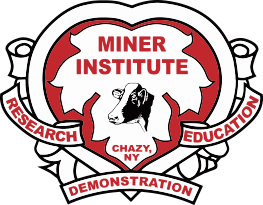Request for Support for Vitamin E Research with Morgan Horses at Miner Institute
 Vitamin E (alpha-tocopherol) is a critically important nutrient for all horses and supplementation is especially important for horses with limited or no access to lush pastures. This vitamin is not synthesized by the horse; therefore, it must come from the diet. It is the primary lipid-soluble antioxidant that maintains cell membrane integrity and enhances immunity. Changes in horse management practices and ingredients used to formulate rations have dramatically increased the need to supplement diets with this critically important vitamin in all segments of the horse industry. Recently it has been suggested that current 2007 National Research Council (NRC) recommended levels of Vitamin E are too low. Gestating and lactating mares, young growing horses, and performance horses have the greatest need for vitamin E supplementation, especially those that do not have access to lush, green pasture. The Morgan horse is particularly challenging to provide sufficient levels of Vitamin E while limiting caloric intake to manage their predisposition to equine metabolic syndrome.
Vitamin E (alpha-tocopherol) is a critically important nutrient for all horses and supplementation is especially important for horses with limited or no access to lush pastures. This vitamin is not synthesized by the horse; therefore, it must come from the diet. It is the primary lipid-soluble antioxidant that maintains cell membrane integrity and enhances immunity. Changes in horse management practices and ingredients used to formulate rations have dramatically increased the need to supplement diets with this critically important vitamin in all segments of the horse industry. Recently it has been suggested that current 2007 National Research Council (NRC) recommended levels of Vitamin E are too low. Gestating and lactating mares, young growing horses, and performance horses have the greatest need for vitamin E supplementation, especially those that do not have access to lush, green pasture. The Morgan horse is particularly challenging to provide sufficient levels of Vitamin E while limiting caloric intake to manage their predisposition to equine metabolic syndrome.
A gelding at The W. H. Miner Agricultural Research Institute exhibited symptoms of mild lameness with muscle soreness sporadically throughout the spring and summer of 2016. After multiple attempts to get to the root of the cause, he was tested for Vitamin E and selenium deficiency. Vitamin E results indicated a deficiency even though the horse was fed adequate amounts based on his fortified grain, according to the NRC's guidelines for equine requirements. This finding was followed up with additional horses and eventually the entire herd being tested with almost all of the horses exhibiting low levels of Vitamin E based on their current diet. Spurred by conversations with a nutritionist, veterinarians, and a few local owners with similar experiences, we suspect that Vitamin E deficiency in horses in our region may be more common than realized. Our Animal Care and Use Committee has approved a study that's now underway to evaluate various Vitamin E supplementation methods. This study is split into two smaller studies. Study 1 will evaluate two therapeutic supplementation strategies for the horses in the herd with the lowest tested Vitamin E levels. The study will compare therapeutic strategy A (10,000 IU for 4 weeks, followed by 5,000 IU for 12 weeks) vs. therapeutic strategy B (5,000 IU for 16 weeks). Study 2 will evaluate the effect of Vitamin E supplement source on long-term levels. The study will compare generic Vitamin E (store-brand at 2,000 IU per day for 16 weeks) vs. veterinarian prescribed Vitamin E (obtained through our veterinary clinic at 2,000 IU per day for 16 weeks). For both studies, a blood sample will be taken from each horse once per month in order to track changes in Vitamin E levels to address these objectives. Samples will be taken by trained Miner Institute staff and sent off for analysis.
The Miner Institute is seeking financial support to conduct this study. It is difficult to get equine research funded and we feel that Vitamin E deficiency may be more prevalent than previously thought, particularly for our "easy-keeper" Morgan horses. The total cost for blood analyses will be at least $2,500 with additional cost for Vitamin E supplement treatments. Any financial support for this important research is appreciated and will be recognized when the results are summarized and presented! Donations are tax-deductible, as Miner Institute is a 501(c)3.
Thank you for your consideration. Go to www.whminer.org or contact Karen Lassell, (518) 846-7121 x120 or lassell@whminer.com for more information.
